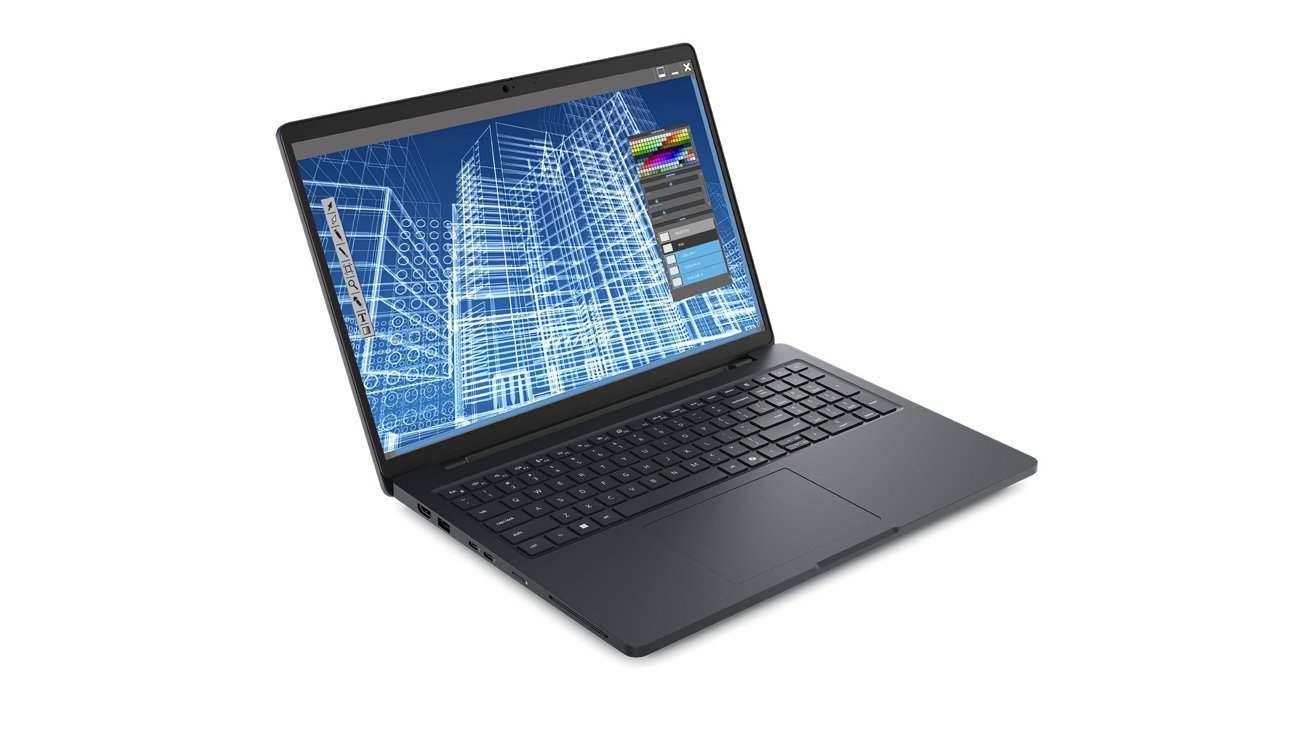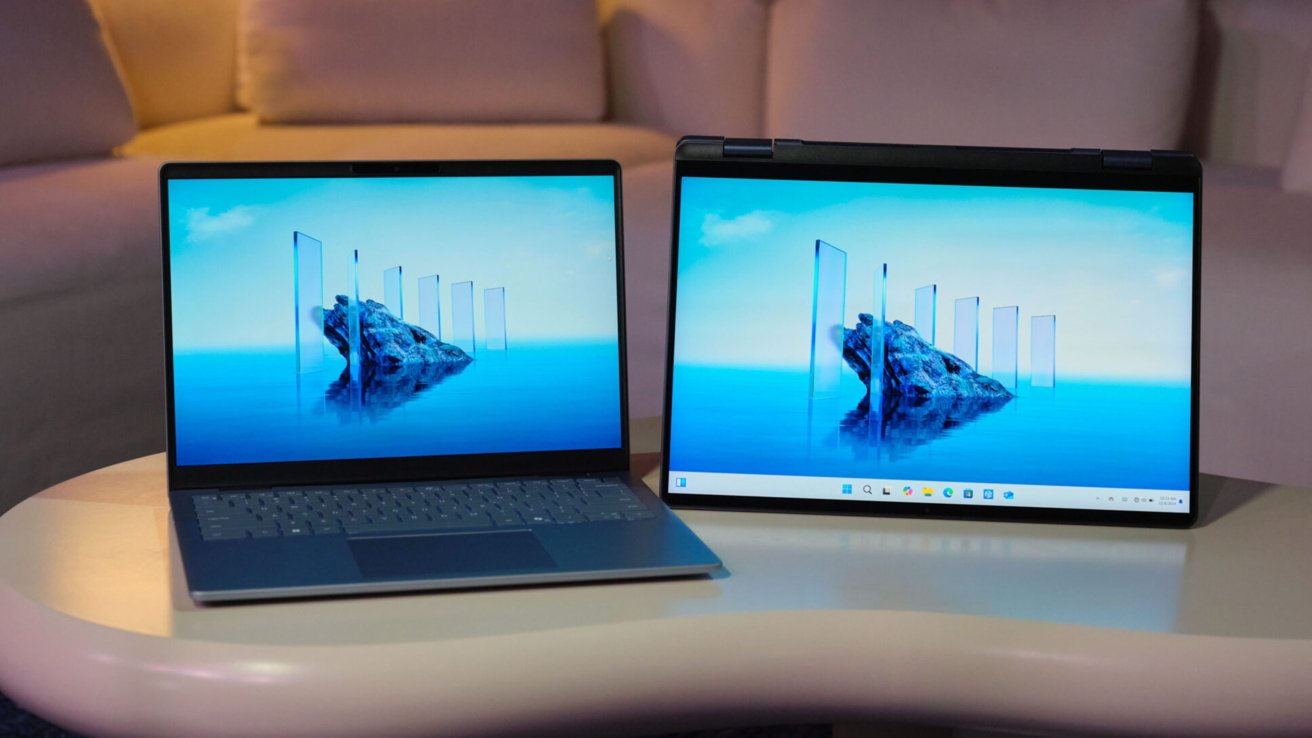In a bid to reinvigorate PC sales, Dell should've put a lot of thought into how it rebrands its PCs. Instead, it ripped off the iPhone's Pro and Pro Max naming conventions.
While a company can use brand names for its products successfully for long periods of time, they sometimes feel the itch to try something new. Rebranding efforts from major organizations can take a lot of resources and focus group meetings to create something new, but it seems Dell decided against that route altogether.
Announced on Monday for the annual CES tradeshow, Dell proudly declared that it's grown tired of its existing product names. Titles such as "XPS" and "Inspiron" have been used for years, denoting the performance and target markets for the models, but they won't anymore.
Replacing the tier names will be some oddly familiar terms: Dell, Dell Pro, and Dell Pro Max.
This is identical to how Apple brands the tiers of its iPhones, as well as the MacBook Pro range, and even its Apple Silicon chips. It also seems Dell decided to leave room for expansion, by not using Ultra too.
Painfully obvious
The announcement, occurring three months before April Fool's Day, was made at a pre-CES briefing by Dell COO Jeff Clarke, as well as a blog post.
"Customers really prefer names that are easy to remember and easy to pronounce," Clarke told reporters, reports Bloomberg. He insisted that consumers should need to take time "figuring out our nomenclature, which at times has been a bit confusing."
Attendees at the briefing quickly caught onto what Dell was doing, and pressed on why it went for something reminiscent of a direct competitor's naming scheme.
"I am wondering why you guys didn't choose something original, because you essentially have Apple's branding here," one attendee said. Another pressed further, "Your branding sounds a lot like Apple - aren't you following them?"
The pretty damning instant commentary from the media was defended weakly by Dell executives, insisting that nobody owns words like "Pro" and "Max" at all.
While certainly true, that assertion certainly doesn't stop anyone from seeing the pattern of usage and wondering if Dell simply copied Apple.

Clarke also insisted that Dell really did put the effort into coming up with the names, with the decision using research from "tens of thousands of customers." Certainly no-one who will have come into contact with an iPhone or Apple products in the past.
Dell PC business VP Kevin Terwilliger also added that Dell's approach is similar to Apple's by "anchoring" products to a simple brand name. Though seemingly with the intention of that anchoring not being to Apple's products.
The belief the company's doing the right thing here also goes up to CEO Michael Dell, who points to the need to capture a new wave of customers.
"There's an install base of 1.5 billion PCs, and it's aging - and those PCs will need to be replaced with the AI innovation," Michael Dell told reporters at the briefing. The new naming scheme will "make it easier for our customers to do business with us."
This was said without irony, considering Apple is well-known for its application of AI processing over the years, and the more recent introduction of Apple Intelligence.
But wait, there's more
While the press conference report insists there are three general tiers of products at play, Dell also goes on to make things even harder to understand.
Apparently "Pro" is not Pro enough for Dell.
The Dell, Dell Pro, and Dell Pro Max lines denote performance, ranging from basic work PCs to more "professional-grade productivity" with Pro, and "maximum performance" with the Pro Max.
While this scheme certainly denotes levels of performance in an easy way, Dell then added more descriptive terms it will be using throughout all three ranges.

Each range will include a base starting point, as well as "Plus" and "Premium" tiers, representing "scalable performance" and "the ultimate in mobility and design" respectively.
Dell's naming convention is going to include numbers for notebook screen sizes, as well as these sub-category tiers. Cue word salad titles such as "Dell Pro 14 Premium" or "Dell Pro Max 16 Plus."
These extra Plus and Premium additions could make things a bit harder for consumers to understand, despite Dell's intentions. A Dell Pro Max notebook should be the best, but sticking Plus on the end instead of Premium means it's great, but not absolute.
For example, a Dell 14 Premium is not as good as a Dell Pro 14. But, since some may consider "Premium" to be a bigger-ticket term than "Pro," there could be some confusion here.
Spared from the chopping block
While Dell is certainly going after Apple for its main lineup, not all of its brand landscape is being destroyed.
Alienware, Dell's premium gaming-focused brand, will continue to exist and offer consumers brightly-lit gaming PCs and notebooks.
The alien-themed brand seemingly won't be using the new nomenclature at all, and instead will use its own terms. This includes "Aurora" for its desktop gaming PCs, and the revival of "Area-51" for its notebooks.
It isn't known why Alienware will avoid Dell's new iPhone-inspired tier system, but it is likely that its existing branding has enough sway to stick around for a while longer.
Pro Max all the things
Dell does have a point when it comes to Apple not owning the Pro and Pro Max terms. It's true, Apple doesn't own the Pro or Pro Max terms at all.
In Apple's lengthy list of trademarks, there are many products that include the phrase "Pro" or "Max," including AirPods Pro and AirPods Max, the Apple Pencil Pro, Final Cut Pro, and so on.
But while it doesn't own Pro or Max in a legal, licenseable sense, Apple does own the terms in terms of public perception. Everyone understands that "Pro" means the upper-tier models of iPhone or MacBook at a deep down level.
Apple has been using the terms for quite some time, so it has a considerable recognition advantage here. Though other companies are free to use the terms in any way they seem fit, consumers will instinctively look at a notebook bearing "Pro" and think about Apple's hardware, even for a moment.
Dell may be making things "easier" by borrowing how Apple names things for its own products. The cost of that is Dell giving Apple a lot more inadvertent brand awareness.